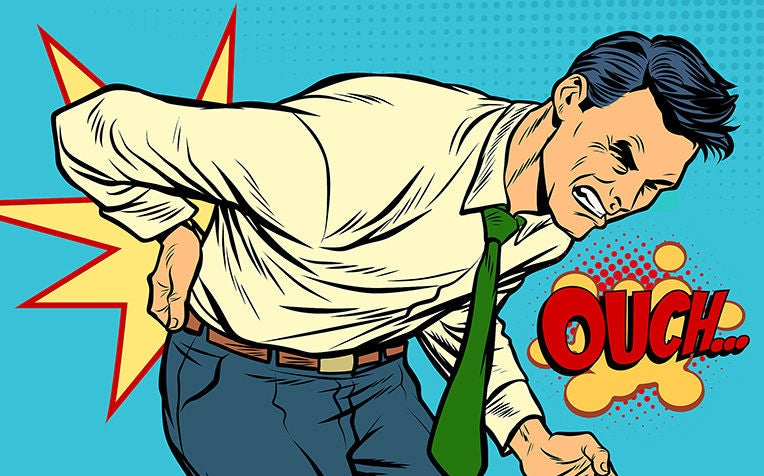
Get help for pain when it becomes chronic and affects your daily functions and mood.
Why do we feel pain?
Pain is the body’s alert mechanism to injury or tissue damage. When we touch a pot of boiling water, we immediately withdraw our hand to prevent it from getting burned, while the pain we feel after surgery is there to remind us to rest and let the wound recover. These are instances we can consider as ‘good’ pain.
"However, when the pain persists beyond the period of tissue healing and is no longer protective in nature, it becomes ‘badʼ pain," shares Dr Diana Chan, Consultant from the Pain Management Service at Sengkang General Hospital (SKH), a member of the SingHealth group.
"If left untreated, it may lead to the nerves becoming overstimulated, resulting in more pain being felt even though the illness or injury is not worsening," she adds.
Causes of pain can vary according to age. “Autoimmune, inflammatory, sports-related, and nerve-related (neuropathic) pain are more common in younger people. The older ones usually experience pain of a ‘mechanical’ nature due to degeneration or wear-and-tear, while cancer pain affects all ages,” says Dr Chan.
Acute pain vs chronic pain
Acute pain occurs when there is an injury or trauma. It is generally intense and short-lived.
Chronic pain lasts beyond three to six months, and can be either continuous or intermittent.
It can affect the function and mood of the individual, leading to a vicious pain cycle.
“Having a painful knee, for example, can slowly lead to decreased activity as the afflicted doesn’t move about as much. This leads to weight gain and muscle mass loss, which puts more stress on the knee, resulting in even more pain,” Dr Chan explains.
Both acute and chronic pain can be crippling but the ongoing nature of chronic pain can significantly affect one’s social well-being and mental health. It can lead to days away from work, depression, and affect a person’s relationships and quality of life.
That is why pain management requires a multi-pronged approach. Apart from prescribed medications, patients are encouraged to adopt lifestyle changes and good habits like getting enough sleep, light exercise and a little weight loss, which can ease chronic pain.
/common-pain-conditions-diagram.jpg)
How to manage chronic pain
If you have chronic pain, use the Pain Self-Management Strategies Wheel* below to better manage it. For each strategy, rate how well you think you are doing by putting an X in the section. Use this wheel to track your progress, with the goal of reaching ‘Well-Managed’ for each strategy.
/pain-management-scale.jpg)
/pain-management-strategy-wheel-diagram.jpg)
* Use the Pain Self-Management Strategies Wheel in consultation with a psychologist or pain specialist.
When to seek help for pain
You should consult a doctor for your pain if these develop:
Severe pain affecting sleep or function
Unexplained (or drastic) weight loss or loss of appetite
Fever or night sweats
Inability to pass urine or control one’s bowels
Common misconceptions about pain
Myths | Facts |
|---|---|
Pain is part of ageing | Not really. Ageing can result in pain due to degeneration but not all ageing concerns are about pain. |
Weather affects pain | According to traditional Chinese medicine (TCM), factors such as temperature, dampness, wind, and heat can influence pain to an extent. |
Medications can cure pain | Depending on the type of medication, most medications only help reduce pain. |
The amount of pain I suffer is the same regardless of my weight | Losing weight can help ease pain. This is especially true for low back pain and knee pain. |
Smoking can help ease pain | False. Smoking actually aggravates pain as it increases the firing of pain signals to the brain. |
‘No pain, no gain’ is the way to exercise | It is more important to remain active and exercise within your own limits instead of pushing yourself. |
Some people have higher pain thresholds | Pain is subjective and depends on a person’s sociocultural circumstances, ethnicity, past experiences and personality. A person with anxiety or depression is likely to perceive pain worse than someone who is cheerful and optimistic. |
This article was adapted from Skoop magazine (issue 8).
Ref: K21
Check out other articles on pain:
Chronic Pain: Nerve Pain is a Common Cause
Chronic Pain Management with Neuromodulation
Manage Pain with CBT (Cognitive Behaviour Therapy)
Contributed by















 Get it on Google Play
Get it on Google Play